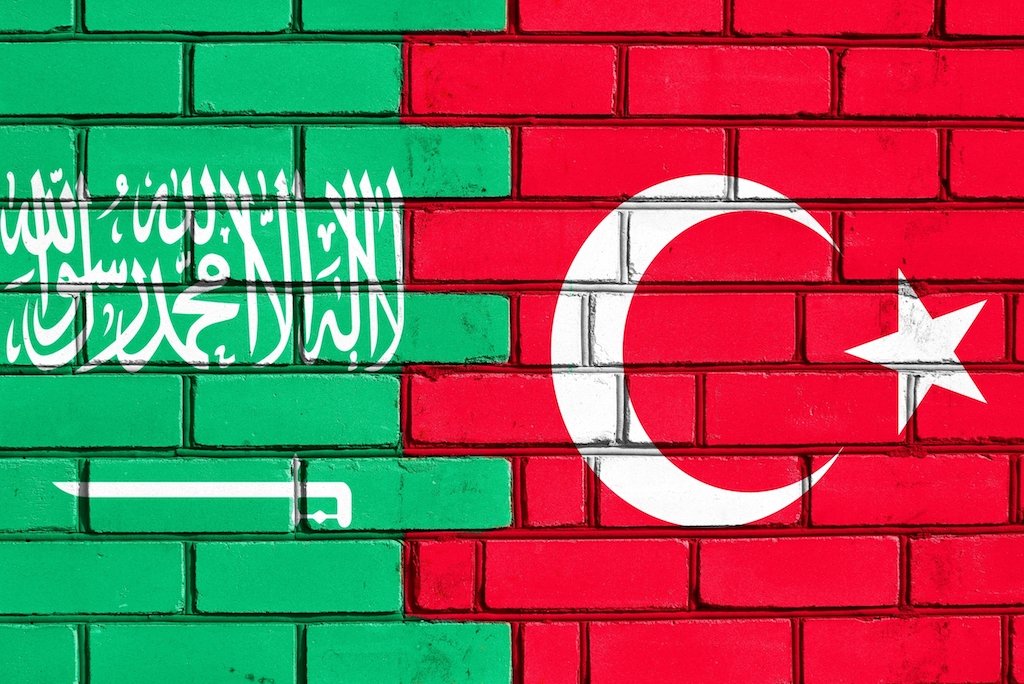Saudi Arabia’s powerful Crown Prince Mohammed bin Salman has described the Turkish government as part of a “triangle of evil” along with Iran and hardline Islamist groups, Egypt’s Al-Shorouk newspaper reported on Wednesday.
The Saudi prince also accused the Turkish government of trying to reinstate the Islamic Caliphate, abolished nearly a century ago when the Ottoman Empire collapsed.
After a backlash from Turkish social media users, mainly on Twitter and Facebook, the Saudi Embassy in Ankara released a statement refuting the remarks.”It was alleged that the Saudi crown prince pointed to Turkey via the words ‘some evil powers in the region.’ We would like to state that these ‘evil powers’ are the Muslim Brotherhood and radical groups,” the statement said.
Bin Salman’s reported comments have been seen as a reflection of Saudi Arabia’s deep suspicion of autocratic Turkish President Recep Tayyip Erdoğan, whose ruling Justice and Development Party (AKP) has its roots in Islamist politics and who has allied his country with Qatar in its dispute with Saudi Arabia and some other Gulf states.
Turkey has also worked with Iran, Saudi Arabia’s arch-rival in the Middle East, to try to reduce fighting in northern Syria in recent months, and the Iranian and Turkish military chiefs exchanged visits last year.
Al-Shorouk quoted Prince Mohammed bin Salman as saying “the contemporary triangle of evil comprises Iran, Turkey and extremist religious groups.” The prince spoke to Egyptian newspaper editors during a visit to Cairo, on his first foreign trip since becoming heir to the oil exporting giant last year.
Meanwhile, Turkish Culture and Tourism Minister Numan Kurtulmuş blasted the Dubai-based pan-Arab broadcaster MBC’s decision to remove all Turkish programs from its channels, saying “a couple of politicians cannot just sit at a desk and decide who will watch which film.”
“Those days are over,” Kurtulmuş said, adding that the Turkish Foreign Ministry would work to resolve the issue. “The Turkish film industry has been growing considerably, and many people are eager to watch Turkish films all around the world,” he said.
A report published in The National on March 4 revealed that the MBC “received instructions to remove all Turkish programs” from its channels until further notice. The MBC’s sudden removal of hit Turkish dramas over the past few days is set to continue for the foreseeable future.
MBC Group spokesman Mazen Hayek did not comment on who was behind the decision, or whether it came from inside or outside the company, The National reported. “There is a decision that concerns several media outlets in many Arab countries that Turkish dramas are to be taken off air, including MBC. That was at 1 a.m. Saudi Arabian time on March 2,” Hayek reportedly said.
The directive does not seem to have affected Dubai TV which, according to its schedule published online, continues to screen the drama “Sultana Kosem” (Kösem Sultan) five days a week.
The online streaming service Netflix is also showing almost 20 Turkish programs, including the 2011 historical drama “The Magnificent Century” (Muhteşem Yüzyıl) and the 2009 espionage thriller and Gulf smash-hit “Ezel.”
Turkish TV dramas have recently attracted considerable attention. A study published last year by Interpress Media Services revealed nearly 100 countries watch Turkish TV dramas and that Turkey ranks after the US as second in the world in drama exports with $350 million in revenue.















